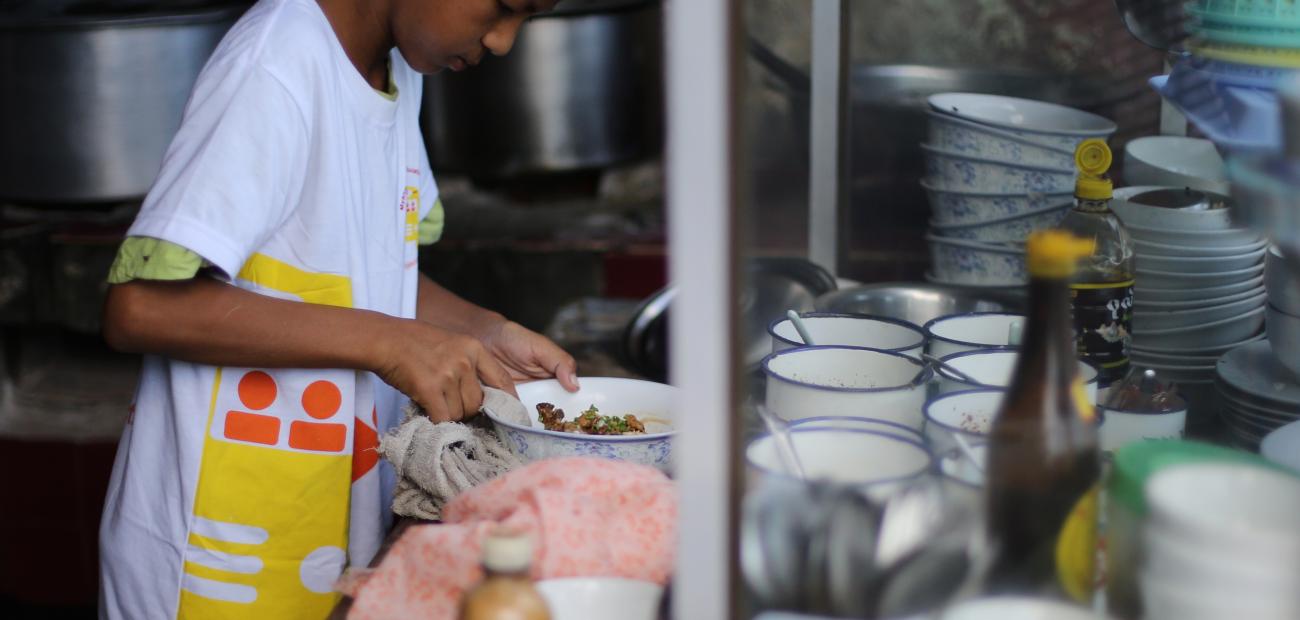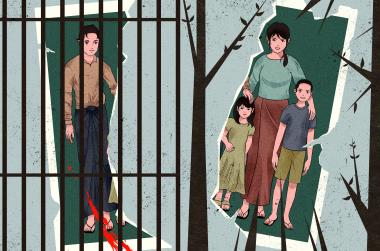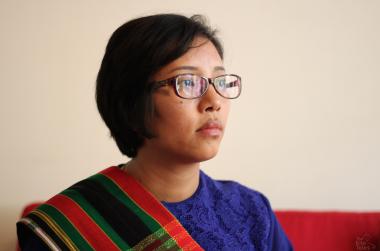This story is part of a series on children working in the teashops of Mandalay. We also spoke to his teacher and his employer
Zaw * works in a Mandalay teashop to send money back to his grandparents in his rural home village. Almost every day of the year he is up before dawn to scrub tables, fill shelves and start brewing the tea for the labourers and truckers who ebb and flow through the premises with the tides of the daily shifts. The men — the customers are almost all men — smoke and joke and watch Bollywood action films on the big screen tv, tuning out the growls of lorries as they lumber along the busy road.
Zaw is alone in the city. His father is dead and his mother, who remarried back in their village, is struggling just to keep his younger brother in school.
He says he is 14. He could use a growth spurt and he knows it. He worries that he is not getting enough nutrition in the meals he gets from the teashop as part of his pay. He has little idea of what the future holds, but every chance he gets he goes to mobile classes for child labourers run by the MyME project. The teashop’s matriarch and the other boys who work there have become something of a new family for him, a precarious protection from the uncertainty of the city streets.
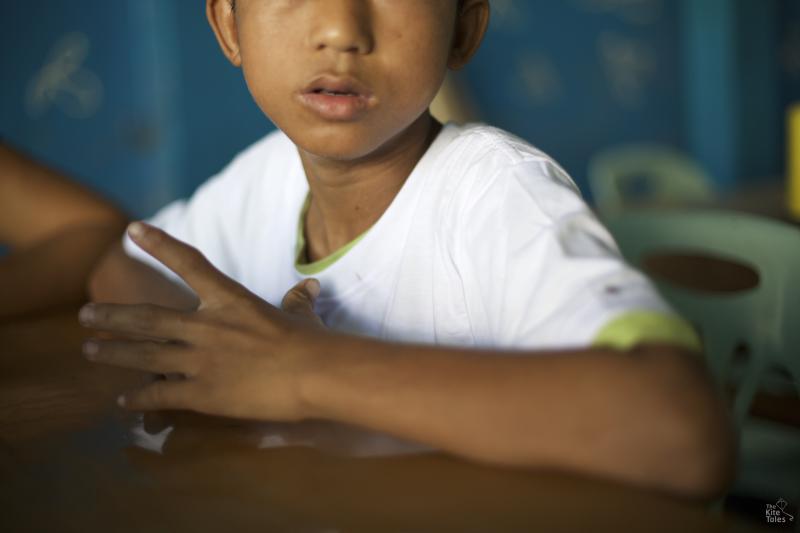
“I’ve been here for over a year now. I came straight from the village. My aunt accompanied me here. I’ve been back about three times since I got here.
“My mum sometimes works in the paddy fields. She also makes chairs and sells them and she does masonry too. Like a casual labourer. My dad is no longer around. He died after I got here. He used to chop down trees and carry big logs. It was while he was cutting a tree using machines that he was hit by a branch and killed.
“I’m the adult. My older brother doesn’t speak to us. Myself and mum work and look after grandpa and grandma who are at home. I send them my wages when I get them. My younger brother is still at school. He’s in kindergarten. He’s only five. I earn 50,000 kyats a month. I don’t send it all back. I save some for my spending.
"The home in the village has corrugated iron roof, teak posts, and bamboo walls. We haven’t got brick walls. I sleep on a bed at home, with a mattress. Here I can switch on the fan at night. At home we haven’t got a fan, only blankets and hand held fans.
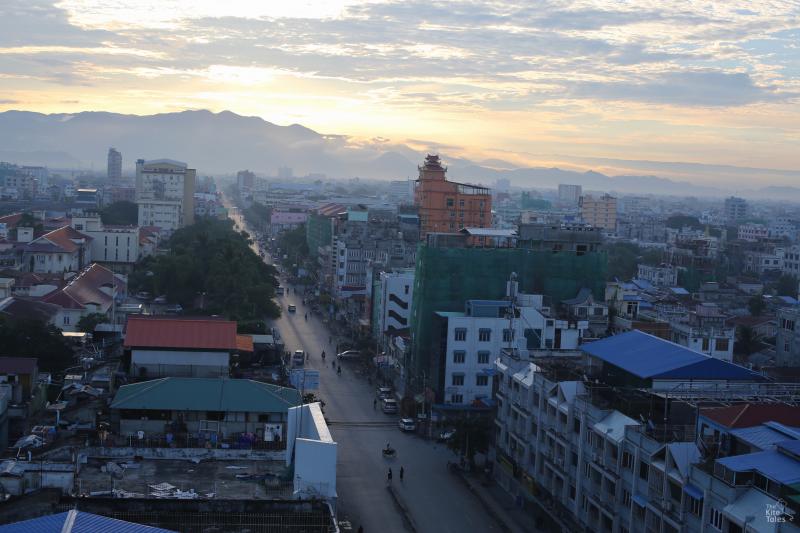
“I studied in the village and attended school until I passed the 4th standard.
“After that I became a novice. I had always wanted to be a novice since I was young. You are a son of Buddha.
“After three years I came to Mandalay. I left the monastic life because I was the only novice at the monastery and it was boring. There was only one abbott so it was just the two of us. Of course it’s much more comfortable to be a novice. But here I can earn money. There are people from my village here too.
“I haven’t been to any other places. Just Mandalay and the villages around my home.
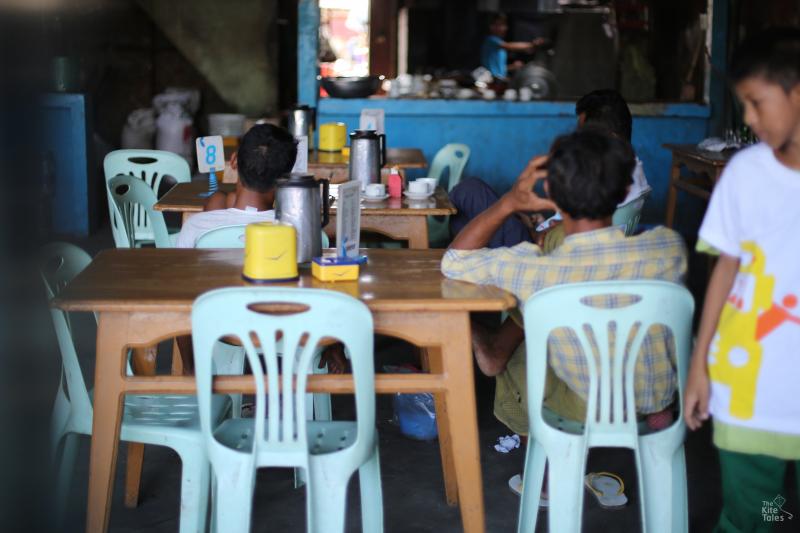
“There are three holidays every year — one day for Thingyan, two days for Chinese New Year. On no other day is the shop closed.
“I eat and sleep here. At night, I sleep on stacked chairs. I get up at 5am. Then I clean the fridge, clear the tables, put the kettle on, fill the cigarette counter. It’s in the morning and at night that it is busiest.
“In the morning we get people on their way to work. The place is full and we always struggle. In the afternoon people come for lunch. Then people stop by again after work.
“We close the shop at 10. Sometimes I only sleep at 12, I fall asleep immediately.
“If I wasn’t going to class in the evenings I’d just work and sleep.
“I do play football too. We play in the evenings during the hours the shop is closed.
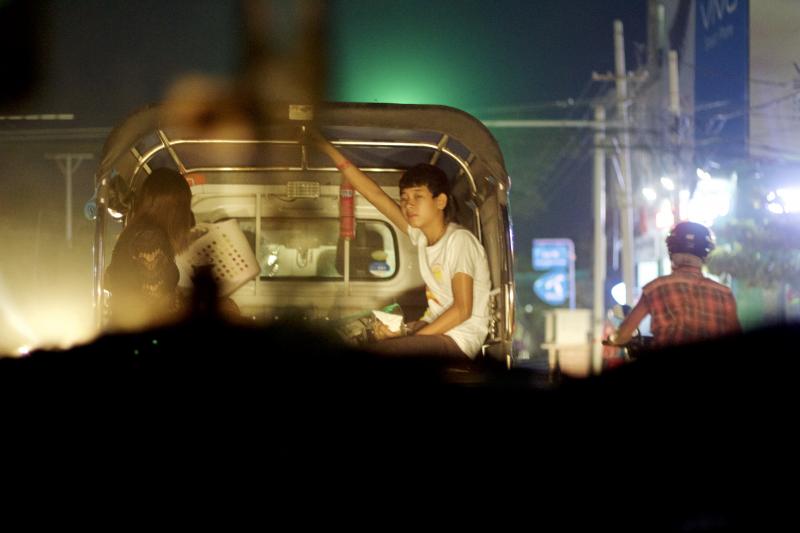
“I began going to MyME classes about two months after I got here. So it’s been about a year since I started learning. They teach us health, English, Myanmar language, everything.
“The owner said it’s fine to attend but that we should go as pairs and not everyday. Only Tuesdays, Wednesdays and Thursdays.
“My favourite is learning how to speak in English. I can currently say: ‘What is your name? How are you? What is your age?’ and then the types of tea that we sell here at the cafe.
“It makes me happy to learn and I want to be educated. I want to know English and general knowledge. Teacher said our semester is almost over. We still have to sit for the exam. Once this semester is done, I’ll attend the next one. I’ll keep going as long as the school is there.
“I enjoy it. I get to meet people I haven’t met before. If I wasn’t attending the class, I wouldn’t have met you. Now I get to meet you.
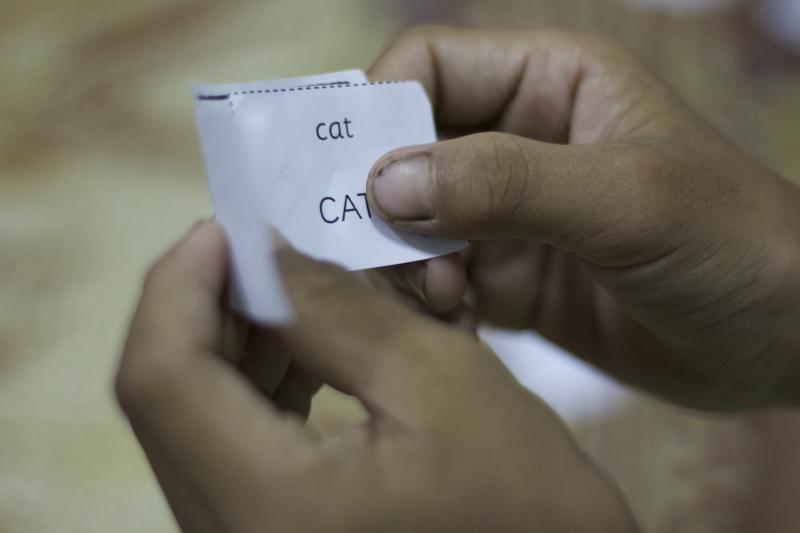
“It’s not too difficult to follow the lessons, but there are aspects that are difficult to do. In the class, we were taught that we should eat fish like snakehead and stuff for our health. Here we are fed, but they can’t afford to give us fish.
“What do I want to be when I finish studying? (Mumbles) Not sure.
“When I was young I wanted to be a footballer. I still want to be one. I like the Myanmar team and I like everyone at Man U, particularly Rooney. From the Myanmar team, I like Aung Thu. He plays for Mandalay Yadanarpon team.
“I don’t consider going back to the village. I like it here, it’s like a family. You can live and eat well here. In the village, you have to work hard but can’t live well.
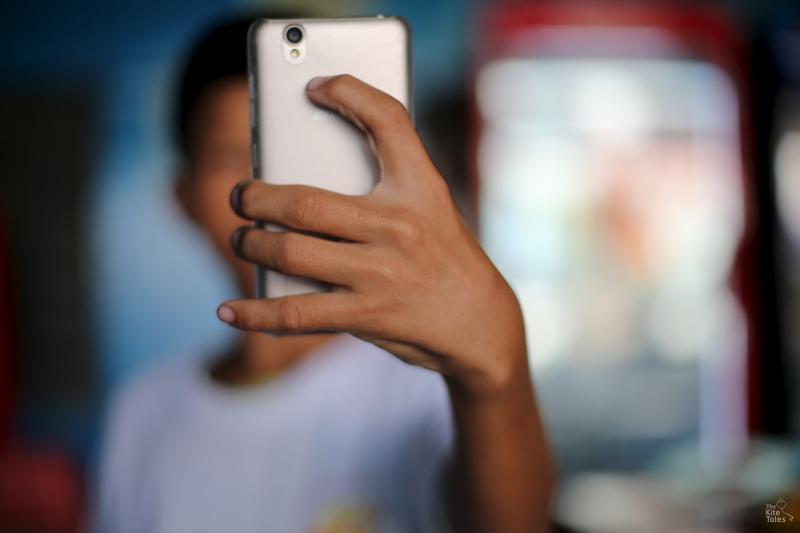
“Here you can earn money and can afford to buy a mobile phone. My most precious possession is my phone. Why? Because I bought it with my own wages. I can use it to contact the village. I also play games on here and the teachers download English lessons for me.
“What I really want to do is get a small TV, the type where you can watch DVDs. Grandpa wants it, he’s bored. It’s not very expensive. Only about 40,000 or 50,000 kyats. When I get my next pay check I can save some money and get it. For myself, I don’t really need anything except to get a new screen for my phone. I dropped it while I was playing with friends.”
(Interviewed Spetember 2016)
* Not his full name

